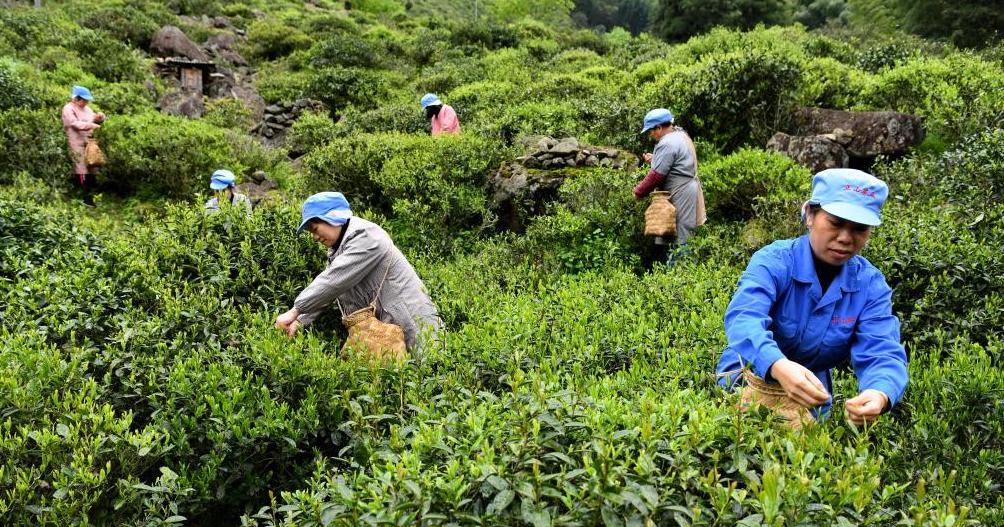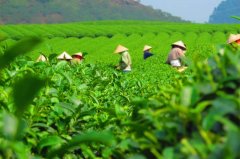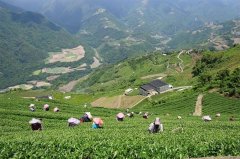The dry elephant is difficult to solve the problem of reducing the output of spring tea by 30%. Tea farmers complain bitterly.
drought and little rain have caused heavy losses in the zhanghu area, yunlin's most important tea producing area. the local village chief says that this is the time when tea plants need water most, and there is no rain. the tea plants are either dying or not growing well. this year's spring tea production will not only decrease by about 30%, but will even affect winter tea production. However, because the subsidy standard has not yet been met, tea farmers are helpless and only hope that the government can find ways to reduce their losses.

Into the Zhanghu tea garden, here is Yunlin's most important tea production area, but because of lack of water, tea trees are not dead, or grow small. Lin Cheng-kuo, the village chief, says: "Normal buds are this tall, but this one has been damaged to the point where it can't grow any more."
The local village chief said that it is now the time when tea trees need water most, but it has not rained for too long, resulting in about 10 tea plantations affected and production reduced. Local village chief Lin Cheng-kuo vs. reporter says: "(How much is the reduction), the reduction is at least almost 30%."
When I arrived at the tea factory, the owner said that this year the amount of spring tea that farmers could harvest had been greatly reduced, and some people even didn't want to harvest it. The hostess said,"Everyone is very poor. Some people can't even collect it. Yesterday someone said that some tea leaves can't be picked at all when they grow up."
In addition to affecting spring tea production, farmers stressed that if there is no rain, even winter tea will be affected. However, the subsidy standard has not yet been met. The county government said it would ask the office to continue to pay attention and, if necessary, give appropriate assistance.
- Prev

Latest report: Increased warming will reduce global tea production
Tea plantations will be hit hard by global warming and tea production could fall sharply in the coming decades, according to a new study released Tuesday by Christian Aid, a charity
- Next

Take over father six tortoise tea garden Li Yongde and his wife grow native camellia
Liugui District, Kaohsiung City, is the largest native species of camellia in Taiwan. Camellia, which does not use fertilizers or pesticides, is often two to four stories high. Tea farmers have to climb trees to make tea. A couple returned home to pick up the tea garden and led the public to feel through tea banquets.
Related
- A one-day flower show brings 130 million yuan in orders! Nanhai, this Phalaenopsis exhibition is amazing
- What do the flower language and meaning of Lutheran tree mean? Precautions for planting Lutheran tree
- Encounter Chaoshan Kongfu tea, not without this cup of Phoenix single clump
- The durian market in Vietnam and Thailand is flooded. The price of imported durian has plummeted by 30-40% in a month.
- Shanghai solved the problem of local vegetable supply by planting 80,000 mu of green leafy vegetables.
- Wageningen University has become the best agricultural university in the world for the seventh time in a row.
- The strongest export season of South African grapes is full of challenges, with exports to Russia falling sharply by 21%.
- Sri Lanka is on the verge of bankruptcy, "Tea for debt" Organic Agriculture Revolution aggravates the Food crisis?
- Turning waste into earthworm manure and worm manure into organic fertilizer-A new choice for auxiliary farming
- Organic rice growers shoulder the responsibility of nurturing agricultural talents! Yinchuan Sustainable Farm with Organic Life Camp

